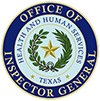Long-term care providers encouraged to update emergency plans
State health officials are reminding long-term care facilities to safeguard their residents by reviewing and updating their emergency response plans. Hurricane season began June 1, and preparation is vital during what is expected to be an active season.
As part of their Texas Health and Human Services (HHS) contract, long-term care facilities are required to:
- Have an up-to-date emergency preparedness plan that meets their clients’ needs.
- Ensure all employees are aware of their responsibilities during an emergency.
- Work with their local emergency management coordinator during an emergency.
The requirements apply to assisted living, nursing and intermediate care facilities, hospices, and group homes. Preparing for a hurricane, flood or other natural disaster includes planning for evacuation, transportation, communication, staff responsibilities and continuing resident care and treatment.
Safety audits
In an effort to help ensure residents’ health and safety, the OIG is auditing the emergency preparedness plans of long-term care facilities. Members of the OIG Audit team conducted an unannounced visit to the Silverado Barton Springs Memory Care Community to determine whether the facility operated in compliance with applicable laws, rules and guidelines.
The audit reviewed the facility’s operation from September 1, 2020, through December 31, 2021 and determined that Barton Springs complied with most HHS health and safety requirements. However, the facility still needs to improve in two areas: maintaining adequate emergency preparedness and response plans for their residents and checking the Employee Misconduct Registry.
Auditors determined the facility had developed an emergency preparedness response plan; however, several key elements were missing that are required by law. Specifically, the facility did not:
- Maintain a complete and current emergency preparedness and response plan.
- Communicate the emergency preparedness and response plan to residents and residents’ legally authorized representatives.
- Request an annual fire marshal inspection.
HHS-regulated facilities and agencies are also required to check the Employee Misconduct Registry before hiring an individual and on an annual basis. This tool tells providers if current or potential staff has committed an act of abuse, neglect, exploitation, misappropriation or misconduct against a resident or client and is, therefore, unemployable. Conducting these mandatory screenings identifies possible problematic staff, providing clients and residents with a safer environment.
The OIG Audit team provided recommendations to the facility and reports that all recommendations were accepted and have been implemented. Additional details are available in the full audit.
Resources
Hospitals, dialysis centers and state-regulated childcare operations are also required to ensure staff are trained to enact an updated emergency plan. Providers can find a wealth of preparedness resources on the DSHS Texas Ready website.

